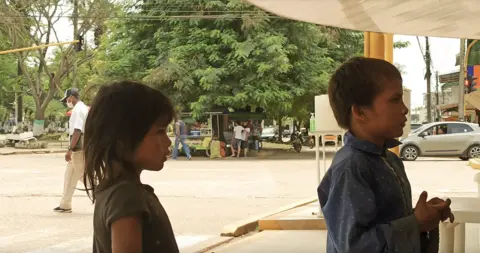
Just three decades ago, the Nukak astonished the country and attracted the attention of local and international anthropologists for being one of the few nomadic ethnic groups still remaining in the world.
Today, eight years after their traditions were declared cultural heritage of the nation, many of their children and young people, as well as those of the Jiw ethnic group whom they live with in Guaviare, do not seem to have a safer destiny than addiction to drugs, while their parents and grandparents drown their sorrows in alcohol.
San José del Guaviare, the capital that is an hour and a half flight from Bogotá, looks from the air like a great Amazon jungle interrupted only by rivers. One of them is the Guaviare River with its great beaches, where locals and tourists take out dorado and other large, smooth-skinned fish, similar to catfish.
It is a town like others in Colombia, perhaps more beautiful because it is silent, and because you feel the energy of a promising future after being discovered as a tourist gem after years of suffering from armed conflict. In a short time, the frequent incursions of the Farc and the paramilitaries have changed for hundreds of tourists, who come from all over the world to appreciate ancient cave paintings and swim with its pink dolphins.
But I did not come to San José because of its wonders, but because of the mental health crisis that indigenous children and youth are facing.
Read the full article in Spanish on the La Silla Vacía website.




